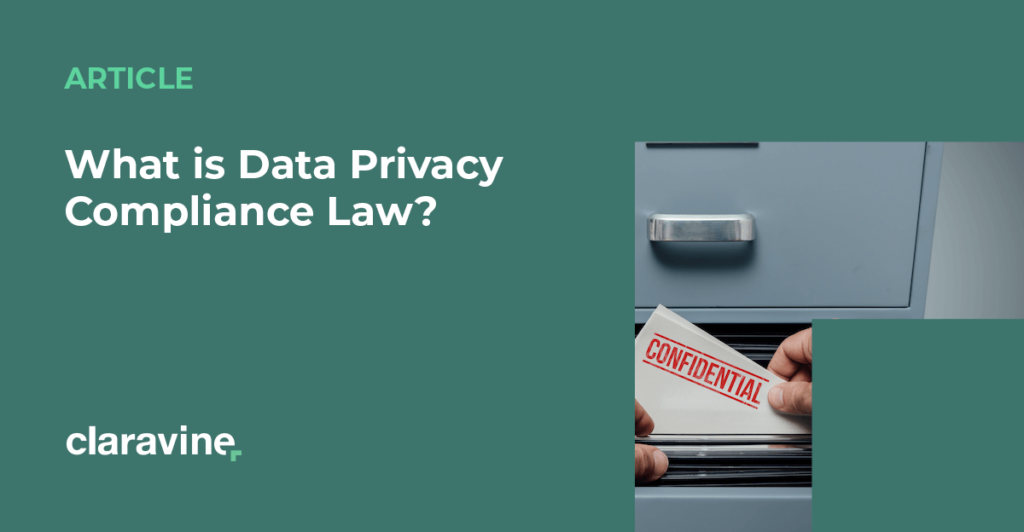What is Data Privacy Compliance Law?

The rising number of data breaches across the globe shows that data privacy compliance is mandatory. With huge companies such as British Airways, Capital One Bank in the U.S., Quora, T-Mobile, and more falling victims of major data breaches, data privacy laws have become more stringent.
Considering such high-profile leaks, having a data protection program is now crucial more than ever before. Because of this, the data privacy compliance law was passed to protect businesses from dealing with losses and other adverse effects of data breaches. Here is what you need to know about this law.
What it is
A good number of states in the U.S. have passed security breach disclosure laws. Companies in these states must follow the privacy compliance laws at the state level and federal laws such as the Gramm-Leach-Bliley Act, financial law, and HIPAA law.
These laws have detailed privacy regulations that companies must follow to avoid penalties, legal liability, and fines. In the legal world, data privacy compliance involves more than just adhering to the set regulations. Companies are also required to have robust data security policies, practices, and procedures aimed at preventing data security breaches.
Data privacy law also protects the employees, customers. The law allows employees and customers to sue an organization when their privacy is compromised while the organization was collecting or handling their personal information.
With the increase of cyber threats, every organization has to ensure that they keep their employee’s and customer’s data safe. It would be best if you used the right security measures to mitigate risks and save your company from losing its reputation and millions of dollars.
Challenges of Data Privacy Compliance
According to a Risk-Based Security report, the data breach records exposed increased to 36 billion in 2020. Companies had to deal with several lawsuits, penalties, and fines following the breaches.
Though companies strive to comply with the data privacy compliance law and have in-house cybersecurity policies, they are faced with several challenges. For example, organizations that handle data outside the United States must protect their data against international breaches.
Since a good percentage of companies have not taken the right steps to prepare their data from international cybersecurity threats, they are not able to keep up with compliance laws. International privacy laws can also be confusing because data privacy laws cover varied data sets.
For example, the General Data Protection Regulation (GDPR) protects the personal data processing of EU individuals, while HIPAA compatibility laws protect U.S. health data. As a result, health organizations in the U.S. that also deal with EU companies might find it challenging to adhere to both laws.
Canada’s Personal Information Protection and Electronic Documents Act (PIPEDA), Argentina’s Personal Data Protection Law, and Australia’s Privacy Act are other comprehensive international data protection laws that U.S companies with international businesses have to deal with.
These laws are becoming more expansive and numerous. Since several U.S. legal compliance departments are also not conversant with the complexities of the data privacy laws and how to comply with them at state, national, and international levels, organizations face the risk of hefty penalties for non-compliance.
How to Set Up an Organized Compliance Effort in Your Company
New business landscapes and dimensions of technology are emerging, and they will create complex issues that deal with protecting personal data. In addition, big data might pose some challenges for management and controls to companies who are still struggling with compliance.
To ensure compliance and guarantee data privacy for your employees and customers, you should consider having the following components:
- Have a compliance subject matter. This includes training and assigning a person or team to develop legal compliance policies and practices.
- Have an overall comprehensive, measurable, centralized, and integrated compliance strategy.
- Establish data protection policies and procedures. This will provide you with solid physical, technical, and administrative safeguards that will ensure the confidentiality, availability, and integrity of your data using a set of controls. It should also include measures to assess, monitor, test, and update your safeguards.
- Have a method to track data, including sensitive personal information or personally identifiable information. This will help locate and protect data as per the legal standards.
- Properly document any compliance processes and plans using management systems to track all records, documents, and reports. Assign a dedicated employee or team to manage compliance and document security.
- Have a response strategy and plan and a well-trained team that knows the right actions to take in case of a breach or an attempted breach.
- Ensure your compliance is verifiable and readily accessible. Have a process for reporting non-compliance and verify compliance and confidentiality through the right monitoring and auditing measures.
Wrapping Up
With tighter consent requirements emerging, companies and individuals will have better control of personal data and manage it. To understand what affects personal data and have a comprehensive compliance system, your legal team should learn more about data privacy compliance law and fully meet your company’s privacy obligations.



